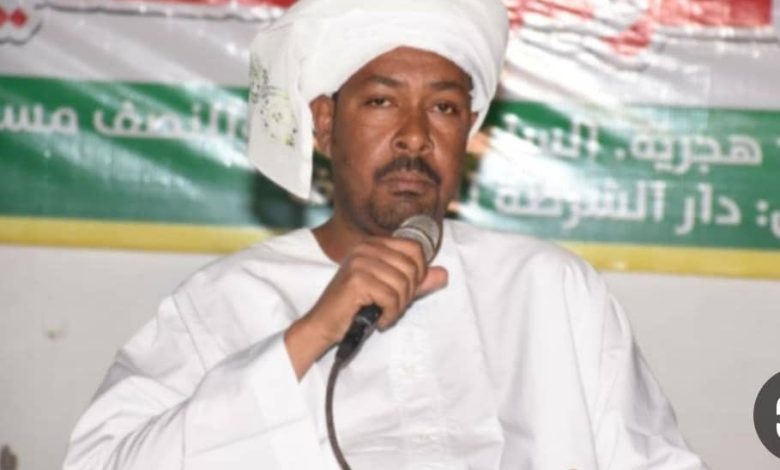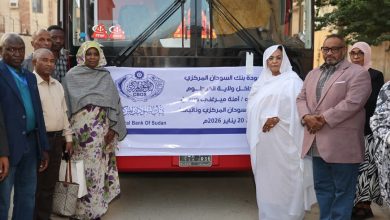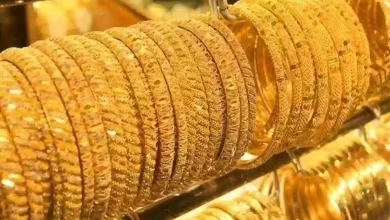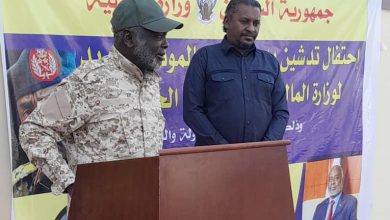Head of the Rain-Fed Sector Farmers’ Association in Sudan, Yasser Al-Saab, to (Sudan Events) Locusts from Ethiopia and Eritrea threaten to invade Sudan

– We were able to release farmers from prisons
– We demand the intervention of the strategic reserve to buy corn
Dialogue – Rehab Abdullah
The head of the rain-fed sector farmers’ association, head of the delegated committee for farmers of Gadarif State, Yasser Al-Saab, announced their concern of a locust invasion from the surrounding countries Eritrea and Ethiopia into Sudan. However, he confirmed in his interview with (Sudan Events) that the Ministry of Agriculture is continuing to combat them, but he emphasised that the matter needs more efforts by the state.
Al-Saab expressed his concern of the decline in Sudanese corn prices and called on the state to intervene to buy from farmers for the purpose of building a strategic stock that would protect the country from food shortages and famine in light of the conditions of war that the country is facing. He revealed that the strategic reserve is now empty of grains, “The state now don’t have a single sack of corn.”
Al-Saab acknowledged his committee’s negligence in addressing farmers’ problems, but he revealed that they had dealt with the problem of insolvency and released a number of farmers from prisons. He justified their negligence by saying that the committee is governed by state policies. More details in the dialogue below:
How are the agricultural season harvest operations going now?
Sesame crop is now being harvested, and the crop has been subjected to strong attacks due to weather factors and rain, which has affected a large number of farmers and led to a significant decline in production and exposed farmers to great losses. There is a general complaint of damage, in addition to the high costs of agriculture, starting with the high prices of fuel and seeds, besides, the lack of sufficient funding for the Agricultural Bank, as some farmers resorted to borrowing from the market, and of course its profits are very high and burdensome. However, sesame productivity is high and the market supply is increasing.
What procedures are required to facilitate the marketing of crops?
Allowing foreign companies to enter the auction, submitting invitations to them, and facilitating export and disposal procedures for exporters there must be incentives. According to the circumstances of the department in the country, we do not expect investors to enter this year due to the security conditions surrounding the country. There must be government steps to encourage the national source of income to buy crops, and the Bank of Sudan must make amendments to the conditions of local trade. Now the Bank of Sudan circular prohibits financing local trade. In the previous period, banks intervened as buyers and as partners for farmers and merchants who bought and stored the crop, but the recent exit of banks led to the weakness of purchasing power. We call on the Bank of Sudan to allow banks to trade internally in sesame crops, speculation, and other crops. Perhaps this, if completed, will give more impetus to marketing.
How much is the suggested marketing fee?
Now the fees on a sesame sack in Gadarif State have tripled to 1,650 pounds per sack.
What are the guarantees that the price of the crop is appropriate with the product?
There are no guarantees because prices are subject to supply and demand, and the evidence is that there is demand for sesame, but we fear a decline in corn prices, so the Strategic Inventory Agency must enter to buy corn from farmers to maintain prices. The state has now stopped supporting the strategic reserve and now there isn’t a single sack of corn.
Entering the state as a buyer protects the product from falling prices and protects the state’s back with the presence of a strategic reserve that protects the country from famine and food shortages.
What are your expectations for production this season?
Production is faced with several risks, the first of which are security conditions and pests. It is true that the Ministry of Agriculture is continuing to combat them, but some efforts must be made, especially as now there is the threat of locusts attacking from the surrounding countries of Eritrea and Ethiopia, and it requires efforts from the state.
How do you view the state’s support for the producer and the extent of farmer satisfaction with the state’s support for the production sector, especially rain-fed?
Unfortunately, the farmers are very upset and dissatisfied because the state does not have any support for the producers, only waiting for taxes collection. Funding is very weak and scarce, and as for the Agricultural Bank, it provided limited financing to fuel and part of the pesticides. Unfortunately, the state does not have any support for the producer at all.
We sought to gather Sudanese farmers before the season, as well as we contacted the Ministry of Finance and the Bank of Sudan to provide financing in order to ensure the smooth flow of the season, but unfortunately, the state has completely forsaken the producer, and now struggling alone.
How do you respond to the criticisms of farmers on the delegated committee for its inability to address the problem of farmers, especially the insolvent?
I do not deny our negligence, but we made a great effort to address the problems of farmers, and we actually addressed the problem of the insolvent, and we were able with the Zakat Office, to cover a large portion of the insolvent and release them from prisons, but the problem of insolvency was major last season, so the committee played increasing roles, but at the end the committee remains for the farmers, while governed by state policies.



